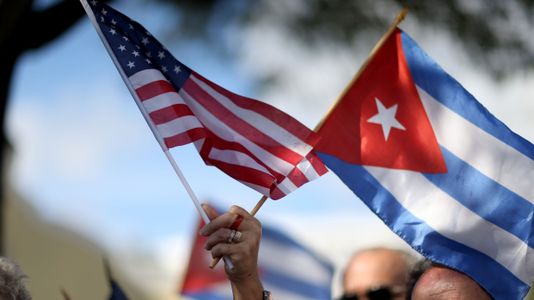Hare in Latin America Advisor on U.S.-Cuba Relations
Amb. Paul Webster Hare, Senior Lecturer at the Frederick S. Pardee School of Global Studies at Boston University, was recently interviewed for an article on the state of relations between the United States and Cuba.
Hare was quoted in a November 17, 2017 article in Latin America Advisor entitled “How Badly Have U.S. Relations With Cuba Deteriorated?”
From the text of the article:
“The regulations will baffle Americans, and maybe that is what they are intended to do. Coupled with the health warning over the sonic attacks, an already nervous public will agonize about being prosecuted for visiting Cuba. Many will decide it’s not worth the bother. Even so, the rules are unenforceable. Yes, it is possible to blacklist hotels and restaurants, but it is nearly impossible visiting Cuba to avoid ‘financial transactions’ with groups like CIMEX, Gaviota and especially GAESA, which really controls the others. A taxi from Havana airport or a tour bus meeting a cruise ship are all likely to be military-owned. So is the store where an American buys bottled water. Because, despite what the U.S. Treasury says, there are no legal privately owned ‘stores’ in Cuba. And the requirement to have a ‘full-time schedule’ of permitted activities is again a fantasy. Who can check? Trump’s aim is to put Cuba again into an adversarial category even though at the United Nations he said the United States did not seek ‘to impose our way of life on anyone.’ There could hardly be a worse time for the United States to be disengaging diplomatically from Cuba as Raúl Castro prepares to step down. Russia, China, Iran and others are delighted. The policies might have banned direct flights from the United States. The travel industry is obviously the main target, but all U.S. companies can no longer take space in the Mariel Free Port because that is administered by Almacenes Universales, part of GAESA.”
Amb. Hare teaches classes at Boston University on Diplomatic Practice, Arms Control, Intercultural Communication and on Cuba in Transition. His novel, “Moncada – A Cuban Story”, set in modern Cuba, was published in May 2010. His book “Making Diplomacy Work; Intelligent Innovation for the Modern World.’ was published in early 2015.
